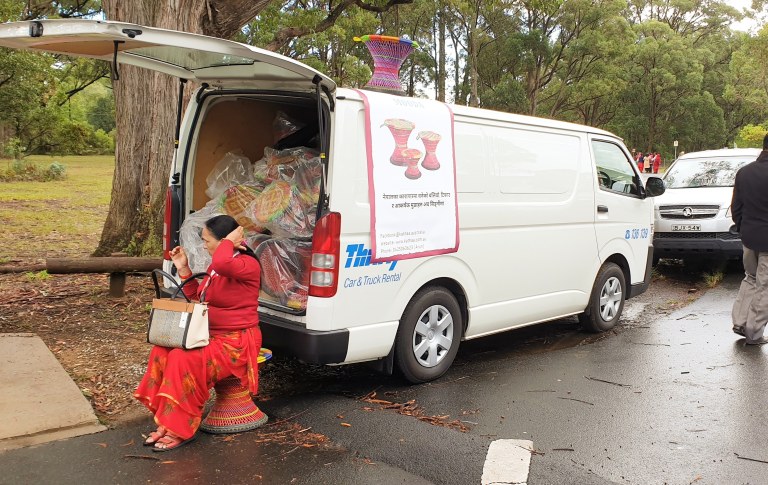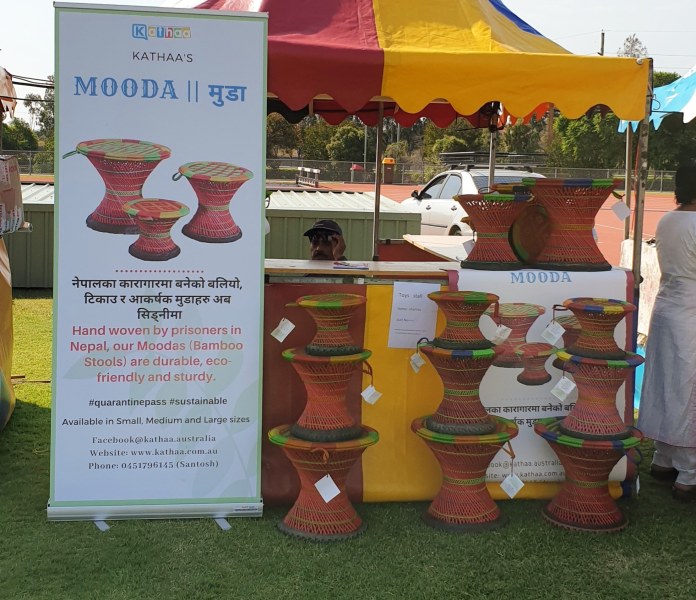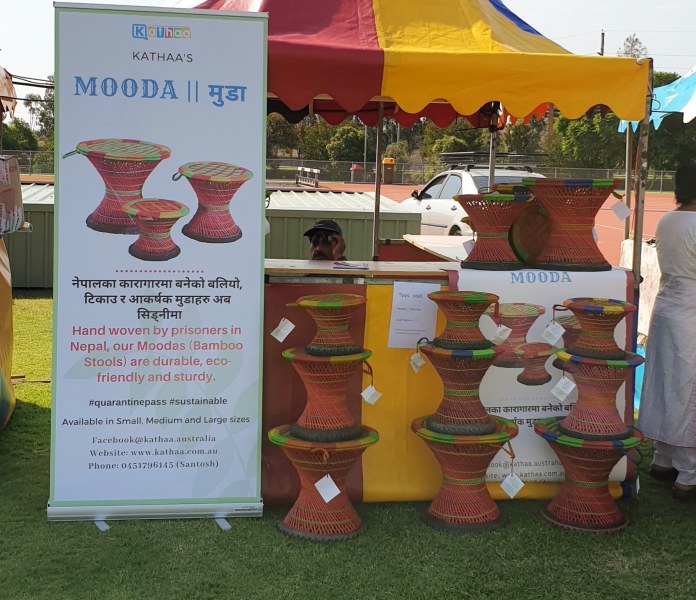- Chanchal Dhakal
Nepali diaspora in Australia was celebrating Baishakhi — a start of a New Year in Bikram Samvat in Campbell town area in Sydney. A local auditorium was displaying color and pomp on this occasion. Local Australians as residents of Sydney joined in the celebration with other locals hailing from Nepal, India, Pakistan, and Bangladesh — the cluster of South Asians. There were stalls on show displaying food and other special items attaching local significance of the respective country.
This was unique in the sense that these countries of South Asia gathered at one platform to celebrate Baisakhi even in the far-off land of Australia across the seas to provide the glimpse of the cultural heritage of South Asia. And, the first month Baishakh and its celebration in the name of Baisakhi is common in entire South Asia because all the countries of this region derive the cultural roots from ancient common culture. Baisakh is the first new month of Bikram Samvat is the historical Hindu calendar from the Indian subcontinent named after the legendary king Bikramaditya of Ujjain (Present Madhya Pradesh, India). Nepal has adopted Bikram Samvat as its official calendar.

One of the stalls put up on the occasion of Baishakhi celebration in Sydney was showcasing Nepal’s handmade stool locally called mooda. Visitors both Australians and South Asians appreciated the art and local materials involved to make mooda. Local representatives, MPs (Members of Parliament) and other people never stopped to have a stop on mooda stall. It was quite encouraging to see that as local Nepalese art of making mooda with locally available materials such as bamboo sticks, ropes, rubber and cotton cloth was getting international recognition and also selling like anything in far-off land of Sydney (Australia). Organizers of Baishakhi were upbeat seeing the response of visitors on mooda stall.
Two MPs of Labor Party – one of the major political parties of Australia Greg Warren and Dr. Mike Frilander were found to be more interested in knowing about the culture and art which go into making mooda like the one they saw in the stall. They wanted to know everything regarding mooda. When they were told that how prisoners locked inside lend their hands in making these moodas, they could not but admire the creativity and labor involved in producing hand-made mooda as small and handy version of the big chair. The visitors and elected representatives expressed their feelings in words like….’wow…amazing story, so inspirational indeed…and happily posed for the group photograph with us. They invited the stall owners and organizers in their own office for a detailed discussion on the subject. It was really very encouraging for entire Nepali diaspora living in Australia to have such friendly overture by the lawmakers and common citizens of Australia.
It is probably the first time that handmade stools have been exported from Nepal for sale. Added to it is the inside story of Nepalese culture and contributions of Nepalese people particularly the jailbirds whose creativity show while one sits on the mooda. Even Nepalese diaspora get connected with their motherland when they explain the feature of mooda to potential buyers in Australia as words slip into the Nepalese art, culture, and tradition. Visitors do not mind listening to it as they feel they are buying something special and carry the mooda home as a replica of Nepalese art and culture. Nepalese diaspora leaves nothing on a chance for selling their prized product mooda; they use stalls, fair, online sale and any other method that shows them the prospect of selling more and more mooda. Mooda is as it is called by the same name be it India, Pakistan or Bangladesh.

Our subcontinent — Indian subcontinent has many things in common and mooda is one among them. Mooda is a symbol of unity for all of us in the far-off land such as Australia. We converge together to pose as one, thanks to mooda which culturally unite us together beyond the political hatred and division. Other migrants living in Australia from South Asia contact the Nepali migrants engaged in the sale of mooda only to share their own story of mooda from their respective country and cultural significance attached to it.
Nepali organizers do not feel bad when other South Asian countries also have their own story of mooda to tell. A Bangladeshi friend visited Pokhara in 1990s for honeymoon after he got married. He happened to see the beauty of the city and a range of moodas displayed for sale. He considers the visit as one of the most memorable visits of his entire life. He shared his own personal life story how mooda saved the honor of his family. In his childhood, his family struggled in poverty and there was no furniture in the house. His mother used mooda while offering seats to visiting guests. It was so touching story, says one of the organizers of Baishakhi.
Similarly, a gentleman from Punjab looking at mooda in the stall in no time referred to Chitwan as he had visited Nepal long back and had a fair idea of mooda-making art in Nepal. He purchased two mooda immediately. A lady sent a message on face book one day enquiring a price of mooda. A bit more interaction with a lady brought forth the fact that her father was employed in prison-administration in Bangladesh. She used to keenly observe the work of her father and was very impressed with how mooda is made by the art of hand employing locally available materials only. “She paid the price of mooda through bank and personally visited my house to take the delivery of mooda,” exudes the organizer.
Another lady wanted to purchase mooda because she wanted to give it a gift to a newlywed bride and got the delivery in her house. This is how Nepali mooda is crossing both cultural and geographical barriers to reach the heart and then the home of people across the seven seas in Australia. It is not going to stop here and will reach all across the world. Nepali mooda is no doubt the attractive catch in the list of items exported from Nepal.









Comment